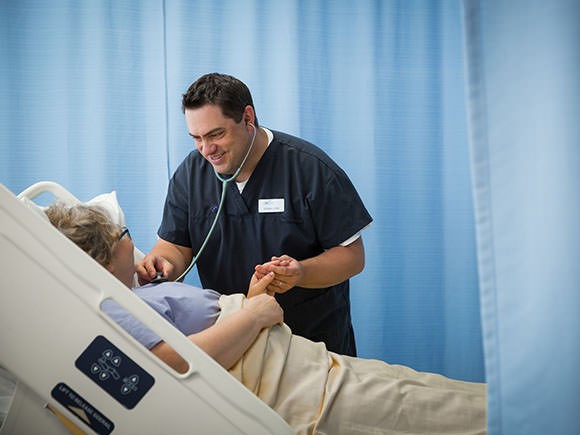For the first time in six years, business administration is not the number-one program for student enrolment at the Nova Scotia Community College.
Since 2019, business administration has maintained the highest enrolment numbers—by hundreds of seats—above a fluctuating series of programs vying for enrolment spots two through five: continuing care, social services, office administration, electrical construction and industrial, early childhood education and practical nursing.
For example, in fall 2023 the top five programs by incoming fall students at NSCC were: business administration: 632; practical nursing: 318; continuing care: 298; electrical construction and industrial: 193 and social services: 187.
This fall, that’s changed. Oct. 1 is the official date that final program enrolment numbers are calculated. However, acting vice-president academic of NSCC, Andrew Lafford, tells The Coast that practical nursing is currently number one.
The Institutional Research Department at NSCC provided The Coast with the school’s top five enrolment programs from 2019 to 2023.
Although 2023 saw the highest number of incoming students to the practical nursing program—it wasn’t in the top five in 2020 or 2021. According to the nursing program’s website, graduates can work in long-term, acute, community and mental health care.
After nursing, this year spots two through five are, in order: business administration, continuing care, early childhood education, and electrical construction and industrial. Lafford says that the common denominator of these top five programs is that they’re immediately employable and offer decent salaried positions.
As for why business administration has been knocked off its number one spot, Lafford says the provincial health sector has highlighted nursing as a career in the past few years. “And,” says Lafford, “nursing and continuing care is rewarding work.”
Regarding career opportunities and advancement for graduates of the two-year practical nursing program, Lafford says, “there’s a pathway from that into registered nursing and from continuing care to practical nursing to registered nursing.
“I think that’s why students are choosing those programs—even if they don't necessarily take those pathways—they're choosing them because at least those pathways exist.”
Lafford says NSCC’s mandate differs from that of universities in the province in their response and connection to industry and labour markets. “If we’re graduating students and there are no jobs for them, that's a problem for us,” he says.
For the 2023-2024 academic year, Lafford says NSCC is on track to attract just under 11,000 full-time students and roughly 9,000 part-time and apprenticeship students this year. The college has 13 physical campuses, one e-campus and 141 programs this fall.
Lafford says that health and construction trades have been the focus of NSCC recruitment efforts in recent years “because the provincial government”—NSCC’s major funding partner—“ has indicated to us and the public that those are areas of critical labour shortage.”
In March of this year, Nova Scotia Nurses Union president Janet Hazelton told the province’s Standing Committee on Health that there were 1,000 nursing vacancies in Nova Scotia Health alone.
Another program that’s been growing at NSCC since 2019 is early childhood education.
“There's this need that's happening right across the province,” says Lafford, [TK link to my piece on child care deserts TK] “so, instead of having just a few sections [of the program] in the major campuses of Halifax and Sydney, we've gone into the rural areas and added extra sections to be able to meet the labour demands in each region of the province.”
According to NSCC’s 2023 Graduate Survey, 92% of graduates were employed, and 93% of those employed lived and worked in Nova Scotia. Overall, NSCC boasted a 92% graduation rate in 2023, with Health and Human Services in the top spot at 96%.
Lafford says these survey results “come back to us meeting our mission statement: to build the economy and the quality of life of Nova Scotia through education and innovation.”

